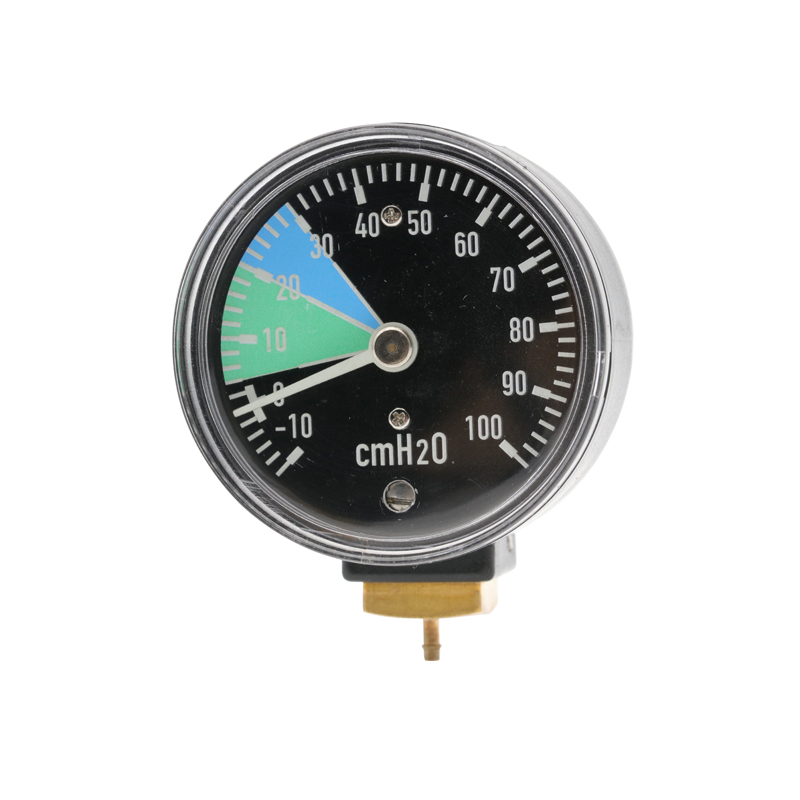
Dic . 02, 2024 02:46 Back to list
mechanical differential pressure gauge
Understanding Mechanical Differential Pressure Gauges
Differential pressure gauges are essential instruments used in various industries to measure the difference in pressure between two points. This measurement is crucial for monitoring processes in systems like air filtration, liquid level measurement, and flow control. Unlike standard pressure gauges that measure pressure relative to atmospheric pressure, mechanical differential pressure gauges focus on the difference between two pressures, which can provide more insights into system performance.
How Mechanical Differential Pressure Gauges Work
Mechanical differential pressure gauges typically employ a diaphragm-based mechanism to sense pressure differences. The gauge consists of two pressure inlets connected to separate chambers. Each inlet measures pressure from different points of a system. The diaphragm, which is a flexible membrane, deforms in response to the pressure difference sensed by these two inlets.
When one inlet experiences a higher pressure than the other, the diaphragm pushes against a mechanical linkage that translates the movement into a readable value on a dial. The scale on the gauge displays the differential pressure, usually in units such as psi (pounds per square inch) or bar.
One of the key advantages of mechanical differential pressure gauges is their simplicity and reliability. They do not require external power sources and can function effectively in various environmental conditions. This resilience makes them ideal for applications ranging from HVAC systems to water treatment plants.
Applications of Mechanical Differential Pressure Gauges
Mechanical differential pressure gauges find their utility in numerous sectors. Here are some of the critical applications
1. HVAC Systems In heating, ventilation, and air conditioning (HVAC) systems, differential pressure gauges are used to monitor filter statuses. By measuring the pressure drop across filters, these gauges help in determining when a filter needs to be cleaned or replaced.
2. Fluid Flow In piping systems, differential pressure readings are often used to infer flow rates. By knowing the pressure difference across a flow element, such as an orifice plate or a venturi tube, operators can calculate the flow rate of liquids or gases.
3. Level Measurement In tanks and vessels, differential pressure gauges help measure liquid levels. By connecting one side of the gauge to the bottom of the tank and the other to the atmosphere, the pressure difference can be used to determine the height of the liquid above the sensor.
mechanical differential pressure gauge

4. Process Control Many manufacturing processes rely on maintaining specific pressure differentials to ensure efficient operation. Differential pressure gauges provide crucial feedback for maintaining the desired operating conditions.
5. Filtration In industrial filtration systems, these gauges are vital for monitoring the performance of filters and detecting blockage or saturation, thereby facilitating timely maintenance.
Advantages of Mechanical Differential Pressure Gauges
Mechanical differential pressure gauges offer several advantages compared to their electronic counterparts
- Durability Mechanical gauges are typically less susceptible to damage from environmental factors such as high temperatures and corrosive substances. They often feature robust designs that can handle demanding conditions.
- No Power Requirement Since they are entirely mechanical, these gauges do not require electrical power, making them suitable for remote locations or areas where power is unstable.
- Cost-Effectiveness Mechanical gauges are generally less expensive than electronic gauges, including installation and maintenance costs, which can be significant in large-scale industrial applications.
- Ease of Use Mechanical differential pressure gauges are straightforward to read and understand, making them user-friendly for operators and technicians.
Conclusion
Mechanical differential pressure gauges play an integral role in industrial operations by providing critical measurements needed for effective process control and monitoring. Their reliability, durability, and simplicity make them a preferred choice in various applications, from HVAC systems to fluid dynamics. As industries continue to evolve, the demand for accurate and dependable pressure measurement tools remains vital. Mechanical differential pressure gauges will likely maintain their significance, adapting to new technologies and applications while providing operators with the essential data they need to keep their systems running efficiently.
-
High-Precision 5 Valve Manifold Differential Pressure Gauge Suppliers
NewsApr.29,2025
-
High-Precision Diaphragm Vacuum Pressure Gauges Manufacturers & Quotes
NewsApr.29,2025
-
Omega Differential Pressure Gauges High Accuracy & Durability
NewsApr.28,2025
-
Low Pressure Differential Pressure Gauges Precision Solutions & Quotes
NewsApr.28,2025
-
Digital Diaphragm Pressure Gaauge Precision Measurement & OEM Quotes
NewsApr.28,2025
-
Differential Pressure Gauge China Price High-Accuracy & Best Quotes
NewsApr.28,2025
